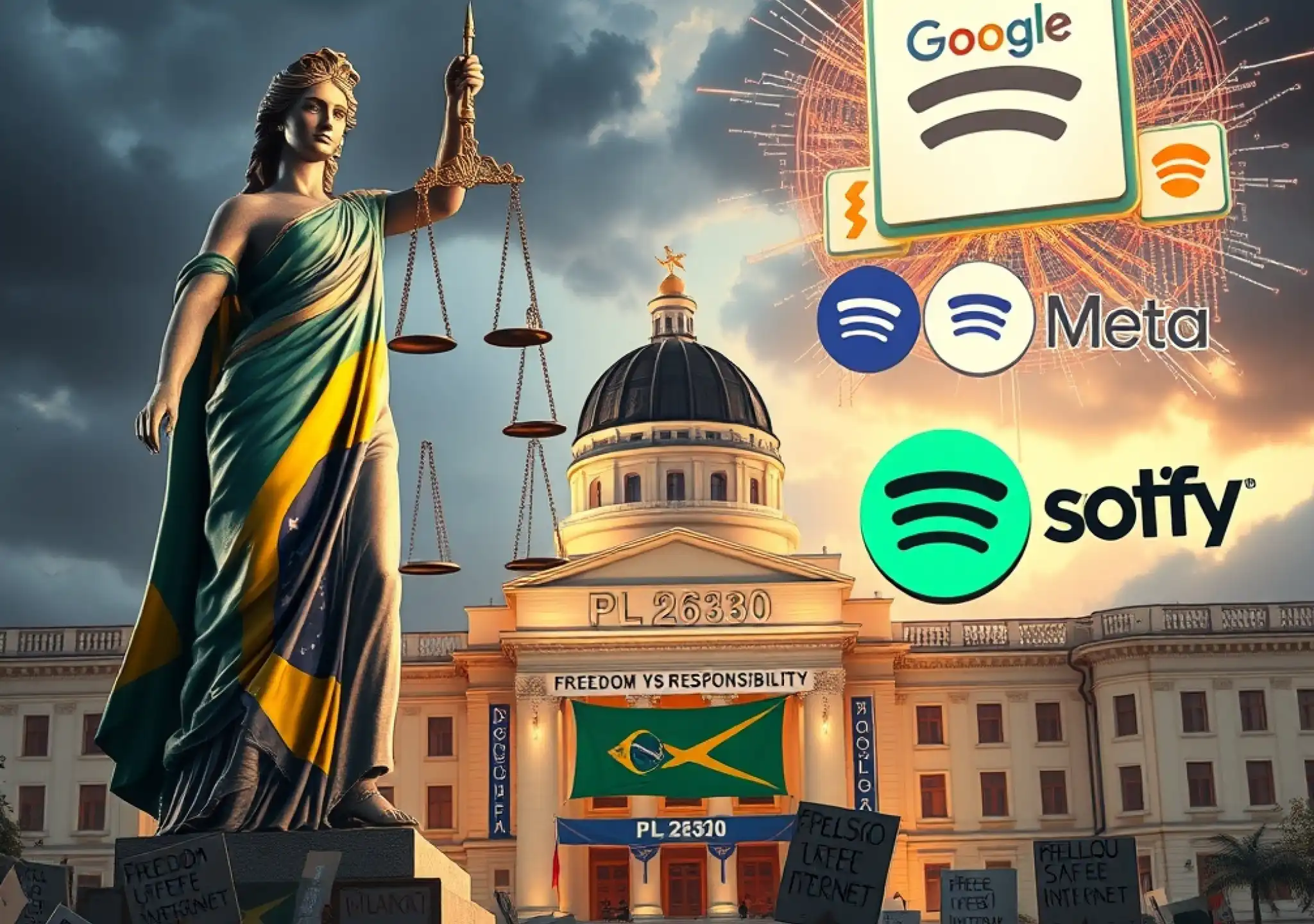Tech firms like Google face government pressure as Brazil weighs strict internet regulation.
Brazil’s Congress is currently debating a controversial bill that would place more responsibility on tech companies to monitor and report illegal online content. Known as Bill 2630 or the “Fake News Law,” the proposed legislation has sparked a fierce battle between President Luiz Inácio Lula da Silva’s administration and major tech corporations such as Google and Meta.
On Tuesday, Google was compelled to remove a banner from its Brazilian homepage that urged users to oppose the bill. The message warned of public confusion and encouraged Brazilians to contact lawmakers, claiming the bill would negatively impact online freedoms.
The legislation aims to penalize platforms that fail to tackle disinformation and harmful content, positioning itself as one of the most stringent social media laws globally—comparable to the European Union’s Digital Services Act, which enforces transparency and accountability among tech giants.
However, companies like Google and Facebook argue that Bill 2630 could pave the way for censorship and compromise access to free digital services. Google stated that the bill presents “risks” to users and the broader digital ecosystem, particularly since its contents have recently undergone substantial changes.
The tech company’s public opposition drew a strong rebuke from Justice Minister Flavio Dino, who accused Google of acting like a media outlet rather than a tech platform. He issued a two-hour ultimatum to remove the homepage message or face hourly fines of 1 million reais (approximately $198,000). Google complied promptly, earning public praise from Dino, who said the rule of law must triumph over the “digital Wild West.”
Dino has also called for an inquiry into whether tech companies engaged in abusive tactics to undermine the bill. Later that day, Supreme Court Justice Alexandre de Moraes ordered Brazilian executives from companies like Google, Meta, Spotify, and conservative outlet Brasil Paralelo to testify before federal police on potential misinformation efforts tied to the legislation.
The bill’s passage remains uncertain due to pushback from conservative and Evangelical lawmakers who have aligned with tech companies. The issue is particularly sensitive following ongoing disputes over Brazil’s electoral system, which former President Jair Bolsonaro falsely claimed was rigged. His unfounded allegations helped fuel the violent January 8 riots in Brasília.
Supporters of the bill argue that stronger regulation is needed to combat disinformation and online extremism. Representative Orlando Silva, one of the bill’s authors, said the legislation aims to curb the spread of fake news that undermines democracy and public safety.
Brazil has also witnessed a disturbing rise in school violence, with critics linking it to online radicalization. Recent incidents include the fatal stabbing of a teacher by a 13-year-old student and an axe attack at a daycare that left four children dead.
Meanwhile, the courts recently lifted a suspension of the messaging platform Telegram, which had been penalized for failing to share information about extremist groups. While access to the app was restored, fines for noncompliance remain in place.

